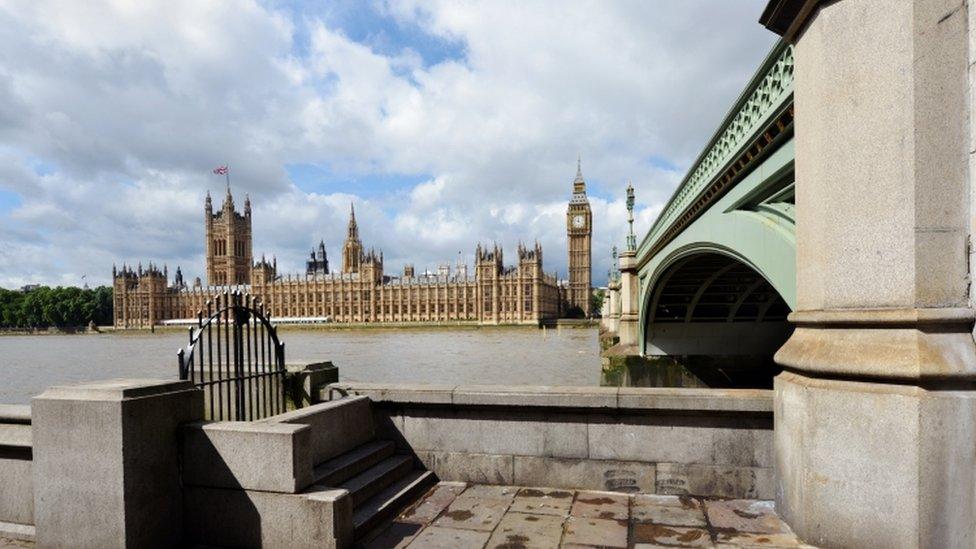Commons abuse: Dame Laura Cox's lightning strike
- Published

The new system for dealing with misbehaviour by MPs is not good enough and the culture and management must change - the verdict from Dame Laura Cox, who was asked to look at how the House of Commons deals with bullying and sexual harassment, following Newsnight's reporting on the subject.
I suspect they were not expecting what they got. This report, external, a response to the reports that Lucinda Day and I published in March, is uncompromising.
Dame Laura, a former high court judge, found "a culture, cascading from the top down, of deference, subservience, acquiescence and silence, in which bullying, harassment and sexual harassment have been able to thrive and have long been tolerated and concealed".
If the House management commissioned a report thinking that she would find that Newsnight had over-egged the problem, they will be sorely disappointed.
'Serial offenders'
She looked, as we did, at the treatment of the clerks - the apolitical staff who run the Commons and its committees. And she found, as we did, remarkable consistency in the accounts given by staff members about the problems in the House with bullying and harassment.
She heard from 200 people about a place overwhelmed with culture of deference where victims feel guilty for their victimhood.
MPs are a major part of the problem; she wrote: "Some MPs were alleged to be "serial offenders" and there was said to be widespread and long-standing awareness internally of their behaviour.
"It is ...not possible to put a precise figure on the number of MPs who are alleged to have behaved in this way, but the accounts indicate that alleged bullying behaviour has been a more widespread problem than one limited to a few individuals. And, while some of the allegations relate to the past, others reveal that it continues to be a problem."
Dame Laura also focuses on a problem that we heard much about, but reported on less. Alongside the problem with MPs, there is a problem with senior clerks.
In an atmosphere where senior MPs are allowed to mistreat junior staff, grand clerks are protected by the same cultural tics and bureaucratic processes.
So what now?
There are some major conclusions she draws from her analysis of this dysfunctional workplace. She calls for a huge amount of change - after all, her analysis is that this is "a culture that has actively sought to cover up such abusive conduct".
But she has some starting steps; necessary-but-not-sufficient conditions for what is needed:
The new grievance processes should allow old claims to be reopened. At the moment, old cases cannot be raised under the House's new improved complaints process. This would permit investigation of John Bercow, Speaker of the House, who is accused of mistreating two of his private secretaries and would also re-open cases like those of Paul Farrelly, a Labour MP, who was the subject of an old process that Dame Laura regarded as insufficient. Both men deny bullying
The process for determining complaints of bullying, harassment or sexual harassment should be "an entirely independent process, in which MPs will play no part" and the standards commissioner should be able to enforce as full a range of sanctions as possible. You can expect resistance on this from MPs, who have resisted any such oversight for years
She also raises a change in administration saying: "I find it difficult to envisage how the necessary changes can be successfully delivered, and the confidence of the staff restored, under the current senior House administration". This, she defines as including clerk of the House Sir David Natzler and Mr Bercow. It is not clear how MPs will process this report. Mr Bercow has the votes to hang on. But some senior clerks may not survive this week. Deputy heads, as ever, are always likeliest to roll
Dame Laura was commissioned to conduct an independent investigation. She delivered a thunderbolt.
You can watch Newsnight on BBC 2 weekdays 22:30 or on Iplayer. Subscribe to the programme on YouTube, external or follow them on Twitter, external.